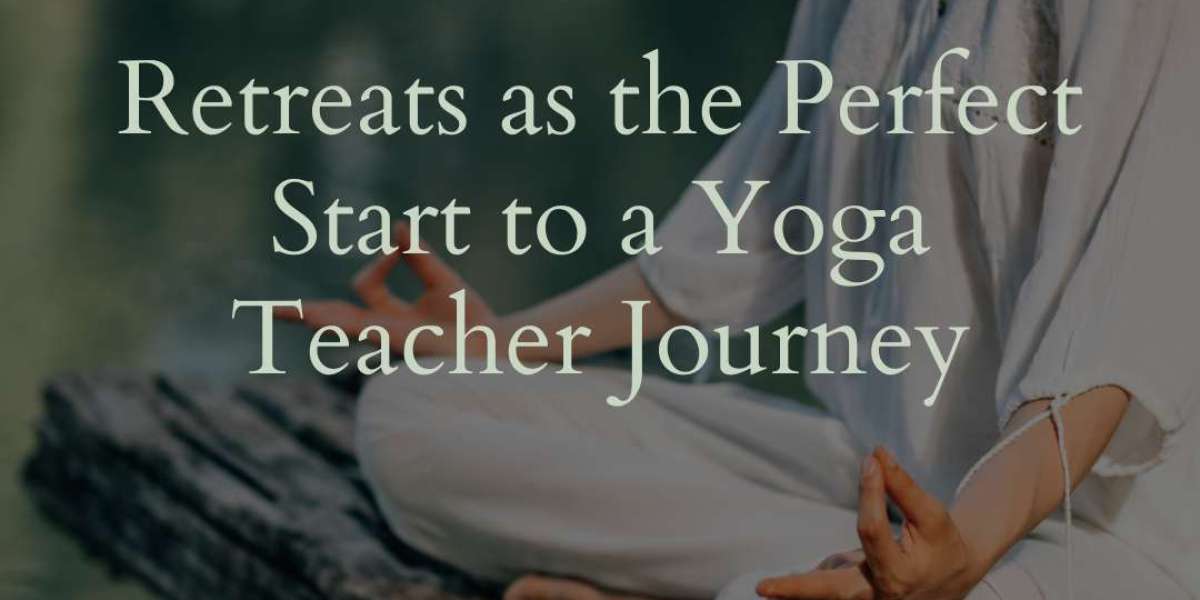Every journey begins with a single step, and for many aspiring yoga instructors, that first step is often a yoga retreat. While some students begin their path directly with formal teacher training, retreats provide an immersive, low-pressure environment that allows individuals to explore yoga beyond the physical postures. They serve as gateway experiences, introducing students to the philosophy, discipline, and lifestyle that underpins the journey of becoming a yoga teacher.
1. Why Retreats Are Ideal for Beginners
Starting with a retreat allows aspiring teachers to:
Experience immersive practice: Daily yoga, meditation, pranayama, and philosophy sessions provide a holistic understanding of yoga.
Understand the lifestyle: Retreats emphasize discipline, mindful living, and ethical principles that form the foundation of teaching.
Build confidence: Practicing in a supportive environment helps students feel comfortable with their abilities before stepping into formal training.
Unlike beginning with a full teacher training course, retreats allow beginners to explore their potential at their own pace, reducing overwhelm while igniting motivation.
2. Immersive Learning in a Supportive Environment
A yoga retreat immerses participants in structured daily routines that reflect the life of a teacher:
Early morning practices instill discipline and mindfulness.
Sattvic meals teach nutrition and mindful eating—key aspects of a yogic lifestyle.
Workshops on philosophy introduce students to the ethical and spiritual principles of yoga.
Community living fosters empathy, teamwork, and interpersonal skills.
Experiencing these elements firsthand prepares students for the structure and intensity of a full Yoga Teacher Training (TTC) program.
3. Understanding Yoga Beyond Asanas
Many people begin yoga focusing only on postures. Retreats help aspiring teachers realize that yoga is much more:
Pranayama (breath control) enhances mental clarity and energy awareness.
Meditation cultivates focus and emotional balance.
Philosophy provides a foundation for teaching ethics, communication, and mindfulness.
Self-awareness encourages reflection, helping teachers guide others effectively.
This comprehensive exposure ensures that students don’t just learn to teach poses—they learn to embody yoga.
4. Retreats as a Gateway to Teacher Training
For many students, a retreat is the first step toward formal certification:
7-Day or 10-Day Yoga Retreats – Perfect for testing commitment and understanding the lifestyle.
100 Hour Yoga Teacher Training in Rishikesh – Builds on retreat foundations and prepares students for the 200-hour program.
200-Hour Yoga Teacher Training – Globally recognized and often the next step for returning retreat participants.
Retreats help students gauge their interest and readiness for longer, more intensive programs, making the transition smoother.
5. Emotional and Personal Growth
Teaching yoga is not just about guiding asanas; it requires emotional intelligence, patience, and compassion. Retreats provide opportunities to:
Practice mindfulness in daily activities.
Develop empathy and communication skills through group living.
Learn stress management and resilience, essential qualities for instructors.
These soft skills are critical for teachers who will guide others on their wellness and spiritual journeys.
6. Community and Mentorship
One of the most valuable aspects of a retreat is the community:
Students connect with experienced teachers who act as mentors.
Peer relationships allow for collaborative learning and feedback.
Returning students often support newcomers, creating a nurturing environment.
This community forms the foundation for long-term support throughout a teacher’s career.
7. Integration of Yogic Lifestyle
A retreat allows aspiring teachers to practice what they teach in a holistic way:
Mindful eating, daily self-care, and meditation become natural habits.
Observing teachers’ routines provides a model for professional and personal conduct.
Students leave with practical knowledge of incorporating yoga into daily life, both for themselves and their future students.
This integration is crucial for those aiming to inspire and lead others.
8. Building Confidence Before Teaching
Retreats often include:
Guided teaching opportunities.
Partner or group sessions for peer feedback.
Safe spaces to explore voice, presence, and instruction.
These experiences help students gain confidence in leading classes, which is invaluable before starting a full teacher training program.
Popular Yoga Programs in Rishikesh
Students often choose Rishikesh because of the wide range of yoga courses available, catering to every level of practice.
100 Hour Yoga Teacher Training Course In Rishikesh – A short-term foundational course ideal for beginners or travelers looking to deepen their practice in a limited timeframe.
200 Hour Yoga Teacher Training – The most popular certification, providing a complete introduction to teaching methodology, philosophy, and balanced practice.
300 Hour Yoga Teacher Training – An advanced course designed for students who have already completed 200 hours and want to master their skills.
500 Hour Yoga Teacher Training In Rishikesh – A comprehensive program combining 200 and 300 hours, perfect for those who want the highest level of yoga education.
7 Days Yoga Retreat In Rishikesh – A wellness-focused retreat for students who may not want certification but are seeking rejuvenation, relaxation, and balance.
Frequently Asked Questions (FAQ)
1. Can a retreat replace a full teacher training program?
No, but it provides a solid foundation and prepares students for longer courses.
2. Do I need prior yoga experience to join a retreat?
Not necessarily. Retreats welcome beginners while providing exposure to deeper practices.
3. How long should a retreat be before considering teacher training?
Even a 7–10 day immersive retreat can help students decide if they’re ready for professional training.
4. Will retreats teach me how to lead classes?
They introduce basic teaching skills but formal instruction is part of certified teacher training.
5. Can retreats help with personal growth as well?
Absolutely. Emotional, spiritual, and lifestyle growth are integral parts of the retreat experience.
Conclusion
Retreats are more than a break from daily life—they are gateway experiences for aspiring yoga teachers. By providing immersion in practice, philosophy, community, and lifestyle, retreats equip students with the tools, confidence, and inspiration to pursue formal training.
Whether it’s a short 7-day retreat or a longer preparatory program, students leave with a clearer sense of purpose, deeper understanding of yoga, and a renewed commitment to teaching. In essence, retreats serve as the perfect start to a yoga teacher journey, bridging the gap between curiosity and professional mastery.



